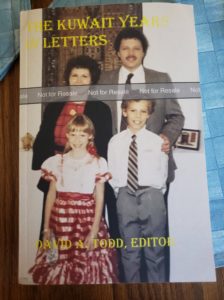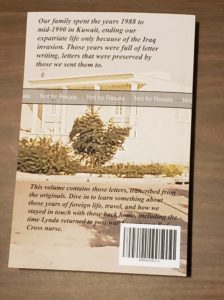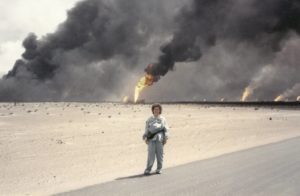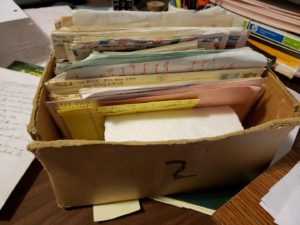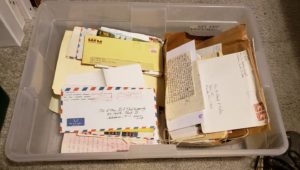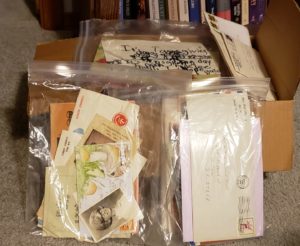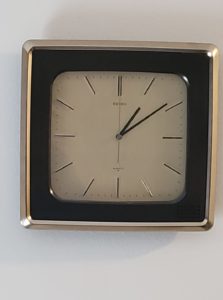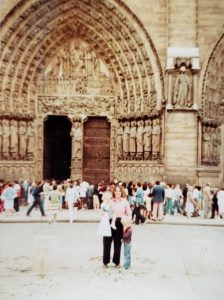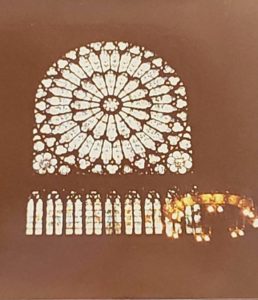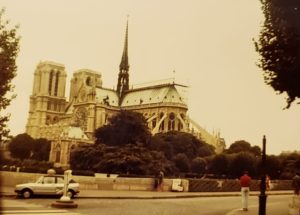Back on September 26, I posted about three special projects I was involved in and how they were keeping me from writing. The projects were:
- inventorying the Stars and Stripes newspapers before donating them to the University of Rhode Island Library.
- Digitizing years of printouts of letters, as a deaccumulation project.
- Finishing the Kuwait Letters book and make it available to family members.
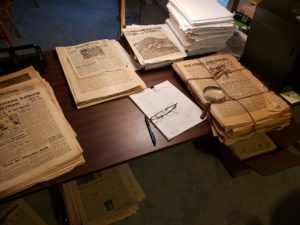
I wrote about each of these projects in the previous post and won’t detail them here.
By a strange set of coincidences, all three projects finished on Friday, November 11.
I finished inventorying the Stars and Stripes not too long after I made that post in September. But the newspapers sat waiting on me to make up my mind whether I was going to ship them to the library or not. I hemmed and I hawed. I carried two of the three boxes upstairs. I gave it much thought. Did I really want to trust this precious cargo to a shipping company? At last I made a to-do list of all the things I have to do and included shipping them.
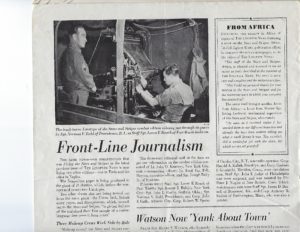
When I saw the large number of tasks I must complete, I decided to go ahead and ship them. I self-scheduled that for Friday afternoon and brought the last of the boxes upstairs from The Dungeon. I loaded them in the car and headed to UPS. I wasn’t impressed with the people there and how they might handle them. They recommended re-packing the newspapers in their boxes, which provides better assurance of safe delivery (and insurance against damage). I decided to go ahead and do it.
I left the boxes there. Due to busyness on UPS’s part, I wasn’t able to hang around and supervise the transfer to new packaging. I’m trusting that they will do it right and, when they are delivered this Thursday, November 17th, the Library will find them undamaged.
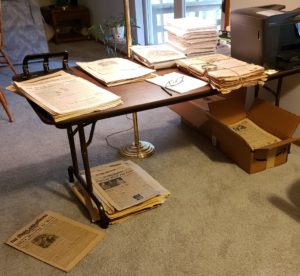
Also on Friday, around 9:00 a.m., I completed scanning the printouts of emails I found in a thick, bulging, 3-ring binder. These were from 2002 to 2005, consisting mainly of e-mails and messages that I sent or received when I was a member of and later moderator/administrator of a couple of poetry critique boards. I wrote a little about that in this post. The letters were arranged more or less chronologically, but were interspersed with printouts of poetry critiques I made during that time. Those critiques, posted at the poetry boards, might be considered correspondence but I chose not to do so. I will deal with the critiques some time in the future.
That one notebook is now devoid or letters. It is full of those critiques, but they are consolidated from two smaller binders and are in an arrangement that I can tackle with less effort sometime in the future.
These are not all the letters I need to digitize, but they represent the lion’s share of them. I have one other notebook that contains letters from about 1990 to 1999, a mix of typed, handwritten, and e-mail letters. I started on them Saturday. But it’s just a 3/4-inch binder and will be short work. I hadn’t even counted them as part of the special project. Why? Because this binder is small enough that I won’t mind if it stays on the shelf for several years. It won’t, but it’s not part of the special project.
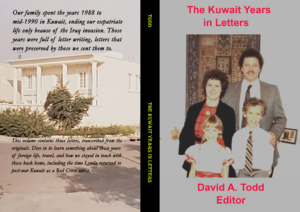
The other special project was my book of correspondence, The Kuwait Years In Letters. I’ve blogged about this several times, one of the best of those posts being here. When I wrote that, in June 2022, I had the proof copy in hand. My wife and I were either just starting or well along in the proofreading process. I finished that a couple of weeks ago. But before publishing, I decided to ask the family about the cover and if they wanted changes in that. Yes, they did. I put together four alternate covers, and they chose one as the best.
I uploaded that cover to Amazon, and it was approved with no changes. I again sent it out to the family. My daughter liked it, but found one typo on the back cover. I fixed that on Friday night, and uploaded to Amazon. Since the only difference between that cover and the last one was a single letter on the back cover, I knew it was going to be accepted. I went to bed Friday night knowing it was all over but the ordering. Sure enough, I started Saturday morning by looking at an e-mail from Amazon. The cover was accepted and the book published. I quickly ordered family copies. Once they arrive and are in good condition, I will unpublish the book.
So, in a 14 hour time span, those three special projects that were preventing me from doing much writing came to a close. I will continue to worry about the Stars and Stripes until I hear from the Library. I will continue to scan a handful of letters most days, probably into early December. I will anxiously await the arrival of the Kuwait Letters book and the family’s reception of it after Christmas.
But I think, now, I will feel much better about carving out time to write. When will I start? Maybe as early as today. The Key To Time Travel awaits my attention. Eddie is in trouble, and I need to figure out how to extricate himself from it.
